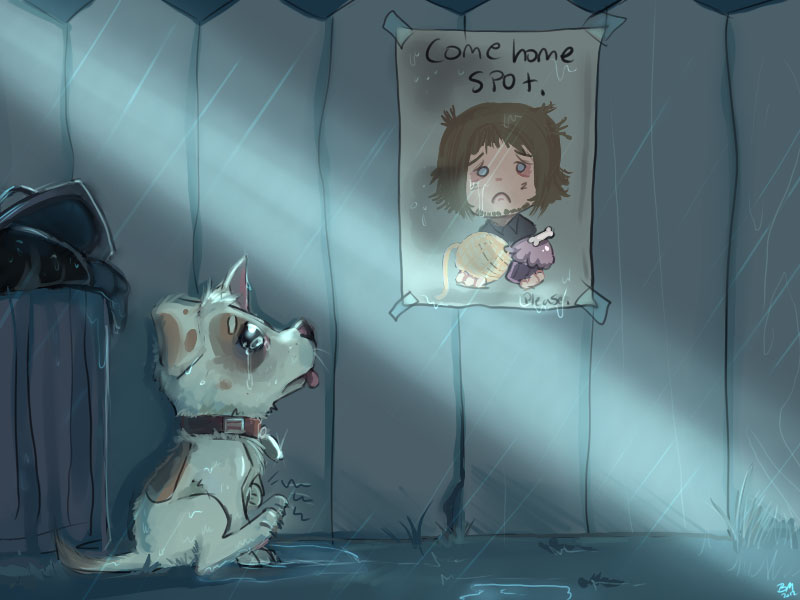Feeding your ferret an appropriate diet is crucial to its health and wellbeing. In fact, it’s critical to your pet’s very survival.
Ferrets are carnivores. More precisely, they are obligate carnivores. Like cats, ferrets cannot survive without meat in their diet. In the wild the ferret is a predator, eating not only the muscle meat of their prey (usually rodents) but also the liver, kidneys, and intestinal tract, and crunching through bones as well. Obligate carnivores have special requirements for several nutrients found only in the ‘side dishes’ the ferret gets when they eat an entire prey animal. A diet limited to meat alone will cause harmful and eventually fatal nutritional imbalances.
More than most companion animals it is vitally important that you start your ferrets on a nutritionally adequate diet when they’re young, and maintain that diet throughout their lives. A good diet for a ferret must be:
- high in energy
- high in protein
- low in fibre
You could of course mimic the diet they would find in the wild by feeding live mice. However, apart from the inconvenience, the mess and the fact that, given the ready availability of correctly formulated foods, it’s unnecessarily cruel to the mice, you also run the risk of your pet ferrets ingesting parasites and viruses.
A much easier way is to feed one of the high quality, premium pelleted ferret foods now available. The best of these are correctly formulated to provide everything the ferret needs in its diet.
If these are not available a good quality kitten or cat food is an acceptable alternative. Because cats are also obligate carnivores a properly formulated premium cat food is nutritionally adequate for ferrets.
That applies only to cat foods. You should not feed your ferrets dog food. Ferrets fed solely on dog food will eventually die of malnutrition.
Ferrets cannot digest the high levels of carbohydrate in dog food. They need to get most of their calories from simple carbohydrates, protein, and fat. The very short intestinal tract of the ferret also means they can’t eat very much at a time, and therefore need a concentrated diet. A well fed ferret should get most of its calories from fat, the most concentrated source of energy.
Why premium foods?
A ‘premium’ pet food, whether for dogs, cats or ferrets, is a commercially prepared concentrated food generally available only from veterinary clinics or specialist pet food suppliers. Whether it is a dry, pelleted food or a canned soft food, premium foods are usually more expensive than those available from supermarkets. At Alpine Animal Doctors we do understand that some pet carers feel that these foods are “no better” than the cheaper generic foods you can buy off the supermarket shelf, or that they are “just a way for the pet food manufacturer to make more money.”
Not surprisingly, as ‘animal dieticians’ most vets, including Dr. Bek, would disagree with that. We know from both experience and from many independent scientific studies that premium foods are not only better nutritionally they are often just as economical as generic foods, because of the smaller amounts needed for a nutritionally balanced meal. But we fully respect the right of a pet carer to make their own choices on what they feed their animals, and we do not normally ‘push’ premium foods on anybody.
Ferrets, however, are a unique case and we stress the importance of feeding them premium foods only because of the ferret’s very specific nutritional requirements.
Modern premium foods for ferrets are precisely formulated to provide everything the ferret needs for a nutritionally balanced diet, and to also be tasty and palatable to an animal that can be very finicky about what they will eat. Ferrets will sometime refuse to even taste an unpalatable food, and will starve if offered no acceptable alternative.
Even with premium foods, some are better than others. Foods containing corn can cause digestion problems and kidney stones in ferrets. Fish protein, sometimes found in dry ferret foods based on mink foods, is not nearly as good for ferrets as is meat protein and can also make the food unpalatable to the ferret, which does not eat fish in the wild. When purchasing a premium ferret food always check the ingredients. We are happy to advise on the most appropriate mixes.
Many people feed their pet ferrets cat foods. In most cases this is fine, although a kitten food is better than those formulated for adult cats. While the premium cat foods sold in veterinary clinics are not formulated specifically for ferrets most of them are palatable and all are nutritionally adequate for pet ferrets. However, generic cat foods — the packeted and canned foods sold in supermarkets — are not good for ferrets. Almost all of them have some important nutritional deficiencies, and all are too low in fat to provide a healthy diet for a ferret.
Although generic cat foods may cost less than premium foods, your ferret will have to eat at least twice as much of these cheaper food to get the calories he needs. That’s not good for your ferret or, in the long run, your pocket.
Mixed Grill
Like cats, ferrets can be very finicky about what they eat. They can become hooked on a particular flavour and refuse to eat anything else. When that happens they can be very hard to wean off their cravings. In extreme cases they may starve rather than eat something they have taken a dislike to. It doesn’t matter to the ferret if their favourite flavour or food is nutritionally inadequate.
To avoid this start your young ferret on a good diet, one that you know is going to be readily available in the future, and stick to it. Feed a mixture of several kinds of ferret and cat foods to get the ferret accustomed to a variety of flavours. If you do have to drastically change the diet of a ferret, stomach upsets and diarrhoea are likely to follow. Always change diets gradually.
Snacks and treats
Your ferret does not need snacks or treats. It’s really best that you don’t feed them at all. It’s not that there is anything inherently wrong with feeding a treat from time to time. The problem is that most ferret parents tend to feed the wrong kinds of treats, which can lead to nutritional issues. Although the ferret is a carnivore that doesn’t stop them loving the taste of other foods, including fruit and sweets.
None of them are good for the ferret. Sugary snacks can cause obesity, tooth decay, and can aggravate hypoglycemia caused by insulinomas. Dairy products, although very palatable to ferrets and nutritionally beneficial, cause diarrhoea.
As bad as the lack of nutritional value in such snacks, ferrets can begin to crave certain tastes and flavours to such a degree that they won’t eat anything else.
A treat is however useful as a training aid. Just be careful not to use anything high in fibre, sugar or with an intense flavour that may hook the ferret. Ideally, use a pellet from their usual diet.
Soft food or pellets?
We believe the best diet is a properly formulated dry food, which is always available when the ferret needs to eat. A good formulation will also have beneficial effects on the ferret’s teeth, limiting the formation of plaque and gingivitis. If you prefer to give your ferrets some soft foods, mix it with a dry food and serve the same mix at every meal to avoid the ferret getting hooked on one flavour. Remove soft foods immediately after meals to avoid it going off and causing stomach upsets.
Ferrets on dry diets need a constant supply of fresh water, about three times the volume of dry pellets eaten. In warm weather they’ll drink much more. Ferrets prefer to drink from a dish rather than a bottle clipped to the cage. A dish of fresh water should preferably be made available to the ferrets when they are let out for exercise to avoid contamination with food and litter. However, if exercise is infrequent or spasmodic water should be left in the cage. Ferrets that have no water for 24 hours will stop eating.


